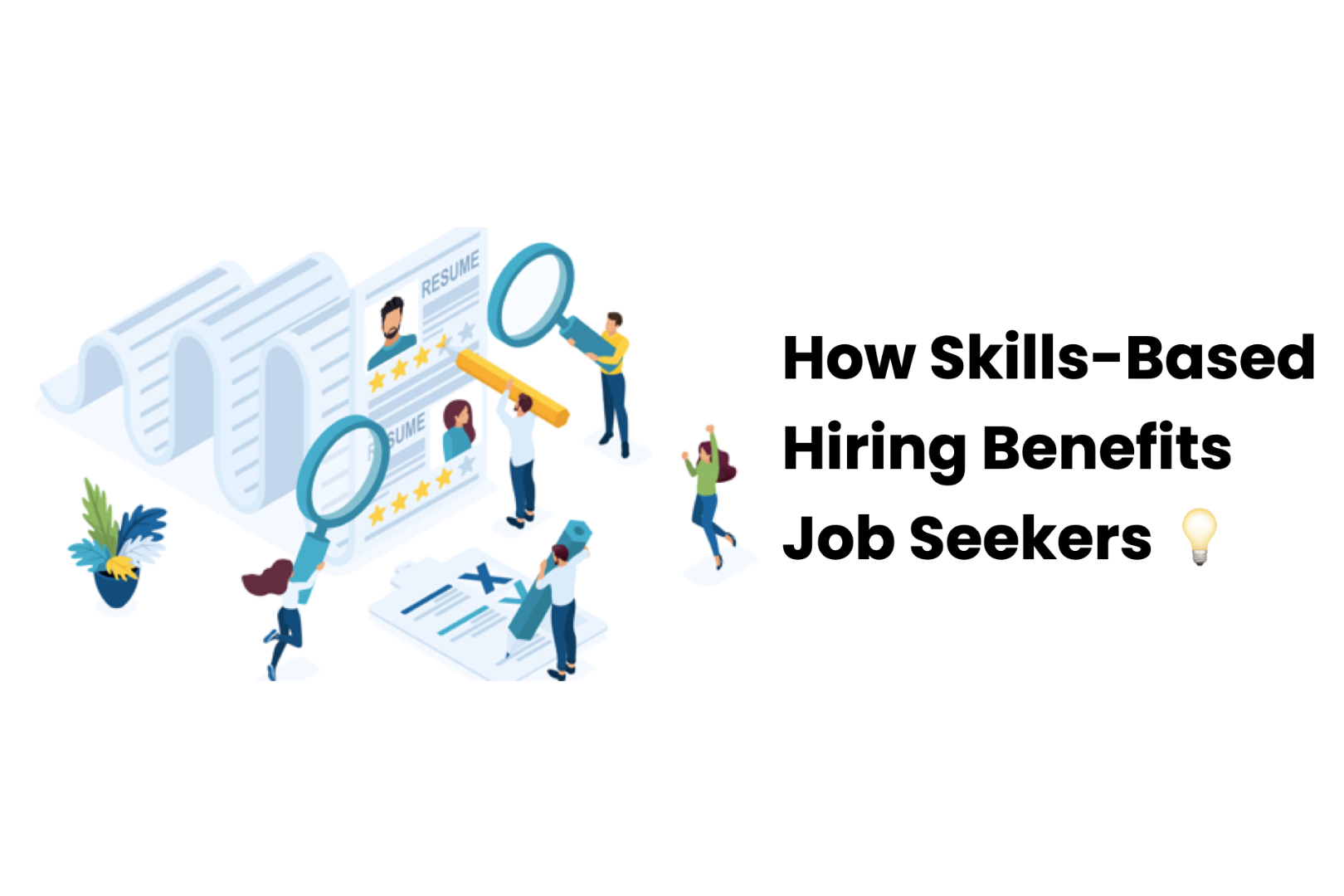
For a long time, education levels for employment are the standard. You see a job posting, and then this degree or that degree is always part of the requirements. Furthermore, an advanced degree like a master’s or Ph.D. would often fast-track your application.
Your academic background is indeed valuable. Many people, including employers, view a degree as a manifestation of hard work, intelligence, and success. While it cannot be denied that specific levels of education are important, these are considered a privilege and therefore hold back people who have no degrees but have equally relevant skills and experience.
This is where skills-based hiring plays a pivotal role. Skills-based or skills-focused hiring is an approach used by employers where they define precise skill criteria for a job position. For example, employers would include in their job boards skill requirements such as market research, financial management, or data science. On one hand, if they are leaning towards soft skills, they would include collaboration, communication, or critical thinking.
More and more companies are adopting skills-based practices, especially given the current pandemic crisis. Just last August 14, networking site LinkedIn launched a pilot programme1 to promote employment based on skills rather than educational requirements. The skills-based employment initiative, Skills Path, began in the United States, and in September, a trial in Singapore will begin.
CapitaLand, Carousell, Food Panda, Lazada, NTUC Enterprise, OCBC Bank, Zalora, and Zuellig Pharma are among the companies that have joined the effort to provide job opportunities. Recruiters, data analysts, and supply chain coordinators are among the roles available at these companies.
Feon Ang, managing director of LinkedIn Asia-Pacific, called on more companies to join the program to satisfy the need for skills and said the firm wants to extend its Skills Path2 initiative internationally. “This also signifies the start of our rallying cry to everyone who can help. The transition to a skills-based economy is not a task that can be solely undertaken by a single entity,” Ang shared.
Hiring based on skills truly benefits employers for it tends to increase employee loyalty and retention. As found by LinkedIn3, non-graduates spend 34% more time with an organization on average than graduates. It also saves frustration and time, as data show that filling job posts requiring four-year degrees take longer4.
We now know how skills-based hiring does a lot of good for employers. So… what about job seekers? How does skills-based hiring help them?
Less impeded opportunities for applicants who are non-degree holders
Exceptional people do not always attend college. Succeeding without a college education is even possible. As said before, pursuing college is a privilege. With skills-based hiring, candidates who have acquired skills through community college, certificate programs, military service, or on-the-job training would not be instantly overlooked. For example, individuals who have coding skills picked up because of intensive boot camps would now have the same opportunity as those with a four-year college degree.
Transferable skills would be highlighted and developed
Leadership, interpersonal skills, communication, and teamwork are a few examples of transferable skills. These skills are useful in a variety of situations, including social, professional, and academic settings. Consider the food servers who were laid off as a result of the epidemic. More than 70% of them have the necessary skills5 to thrive in customer service, which is one of the most in-demand positions on LinkedIn today. There could have been economic mobility involving food servers going into in-demand professions if both servers and employers looking for customer service employees knew they already possessed many of the needed skills.
More job positions would be open to students
Lastly, of course, a skills-based hiring approach would help students get more job opportunities. Students are driven to learn and take on challenges. In a 2020 survey by Parker Dewey6, a top US-based platform for delivering Micro-Internships to college students and recent graduates, 77% of students agreed that acquiring real-world experience is important for their career preparation. Further, 86% of students said they want to interact with companies through “actual job experience”.
In conclusion, skills-based hiring benefits both employers and job seekers. While education requirements are important, we must recognize that they also hinder opportunities. It is high time that employers’ mentality shifts to place a greater emphasis on people’s skills instead of their degrees.
References:
https://business.linkedin.com/talent-solutions/recruiting-tips/thinkinsights/skills-based-hiring
https://hechingerreport.org/what-if-we-hired-for-skills-not-degrees/
https://hbr.org/2021/06/you-need-a-skills-based-approach-to-hiring-and-developing-talent
Created on: 28 August 2021
employee employer